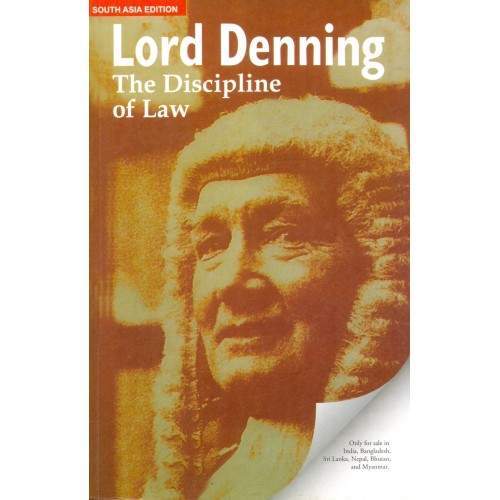Description
The underlying theme of this book is ‘that the principles of law laid down by the Judges in the 19th century – however, suited to social conditions of that time – are not suited to the social necessities and social opinion of the 20th century. They should be molded and shaped to meet the needs and opinions of today.
The Discipline of Law is a fascinating account of Lord Denning’s personal contribution to the changing face of English law in this century. It is divided into seven main parts each concentrating on one area of the law in which that change has been most marked.
Contents
Part One – The Construction of Documents
Introduction
1. Command of language
2. The interpretation of statutes
3. The interpretation of wills and other unilateral documents
4. The construction of contracts
5. Looking for help
Part Two – Misuse of Ministerial Powers
Introduction
1. Deciding wrongly
2. Clauses ousting the courts
3. Declarations
4. Other points on tribunals
5. Administrative decisions
6. Clauses giving unfettered discretion
7. Prerogative power
8. The Ultra Vires clause
Part Three – Locus Standi
Introduction
1. Modern extensions
2. The Blackburn cases
3. Declaration and injunction
4. The remedy of judicial review
5. Private rights
6. The Gouriet case
Conclusion
Part Four – Abuse of ‘Group’ Powers
Introduction
1. Powers against own members
2. Powers against other persons
Conclusion
Part Five – High Trees
Introduction
1. The High Trees case
Conclusion
Part Six – Negligence
Introduction
1. Leading up to Candler v Crane, Christmas
2. Doctors at law
3. The impact of Hedley Byrne
4. Houses falling down
5. Innocent representation made actionable
6. Surprising Consequences
Conclusion
Part Seven – The Doctrine of Precedent
Introduction
1. The doctrine of precedent
Conclusion
Epilogue
Index


Reviews
There are no reviews yet.